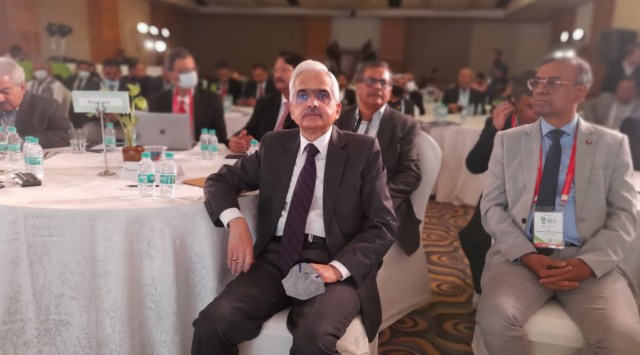RBI Governor Das asks fintech to focus on customer centricity, self-regulation
While the Indian fintech industry has been growing over the last few years, there have been concerns over valuations, leading to slowdown in funding to the sector.
 Reserve Bank of India Governor Shaktikanta Das
Reserve Bank of India Governor Shaktikanta Das Reserve Bank of India Governor Shaktikanta Das on Wednesday urged fintech players to focus on customer satisfaction rather than on revenue and valuation.
Besides customer centricity, the Governor asked fintechs to pay close attention to governance and self-regulation.
“In the dynamic and ever-evolving world of business, it is easy to get caught up in the pursuit of revenue, bottom lines and the relentless drive for valuations. Sometimes, it is forgotten that the success of any enterprise is intricately tied to the satisfaction and trust of its customers,” Das said in his address at the Global Fintech Festival.
While the Indian fintech industry has been growing over the last few years, there have been concerns over valuations, leading to slowdown in funding to the sector.
Focusing on customers will mean embracing a customer-centric approach to innovation by understanding the needs of customers, making provisions that protect customer interests and earn their trust.
This calls for developing an organisational culture in which continuous feedback mechanisms are embedded in the business strategy.
Designing solutions that safely and efficiently meet customer needs would not only elicit trust of customers, it would also meet business objectives in a sustainable manner. This can be achieved through simplified user interfaces and quick customer grievance redress mechanisms, he said.
“Avoiding customer harassment is essential to achieving long-term customer trust,” he said.
The Governor said digital innovations, at times, have also led to cyber-risk and data security related issues.
“Illustratively, mushrooming of illegal loan apps, many of which had their origin in foreign jurisdictions, have led to serious concerns about breach of data privacy, unethical business conduct, levying of exorbitant interest rates, and harsh recovery practices,” he stated.
While digital lending has served various segments of borrowers, there have been several complaints about some of these entities charging higher interest rates and getting involved in unethical recovery practices.
Last year, the RBI had released guidelines on digital lending aimed at protecting customers from unethical business practices, such as mis-selling, breach of data privacy, unfair business conduct, charging of exorbitant interest rates, adopted by digital lenders.
Das highlighted the need to ensure that innovations are accompanied by prudential safeguards and responsible conduct.
“It is also imperative that regulated entities operate within the perimeter set by the licensing conditions and only undertake activities which are permitted under the regulations,” he noted.
The Governor further said by providing clear governance structures, fintechs can demonstrate their commitment to transparency, accountability and responsible decision-making.
“They (fintechs) need to evolve industry best practices, privacy and data protection norms in sync with the laws of the land, set standards to avoid mis-selling, promote ethical business practices, transparency of pricing, ” he said.
Das also urged fintech players to establish a Self-Regulatory Organization (SRO).
According to him, the Indian fintech industry is projected to generate around $200 billion in revenue by the year 2030. This projection indicates that by 2030, the country’s fintech sector could potentially contribute to approximately 13 per cent of the global fintech industry’s total revenue
He said the country has pioneered a layered approach to Digital Public Infrastructure (DPI), with the concept of the India Stack. In this respect, the impact of JAM trinity, that is, Jan Dhan Yojana, Aadhar and mobile in terms of financial
inclusion, digitisation of financial services, and emergence of the fintech ecosystem has been significant.
On Unified Payments Interface (UPI), Das said it has spurred innovation in the fintech space, leading to the growth and development of other payment systems.
In the G20 Summit, scheduled later this week in New Delhi, the country is going to showcase its digital public infrastructure to foreign delegates.
This includes UPI service for foreign delegates without needing a bank account, RuPay payments that can be made through accessories such as smartwatches, the country’s digital rupee or Central Bank Digital Currency (CBDC), and a database platform that can be used to lend money for various purposes.
All through India’s G20 Presidency, it has played up the country’s efforts at creating digital public infrastructure and has also explored other nations’ interest to adopt the underlying technologies that power the country’s DPI push.
At the Global Fintech Festival, Das also launched a few new products – Credit Line on UPI, UPI LITE X and Tap & Pay and Hello! UPI – Conversational Payments on UPI, BillPay Connect.
These products are being built by the National Payments Corporation of India (NPCI).





- 01
- 02
- 03
- 04
- 05


























